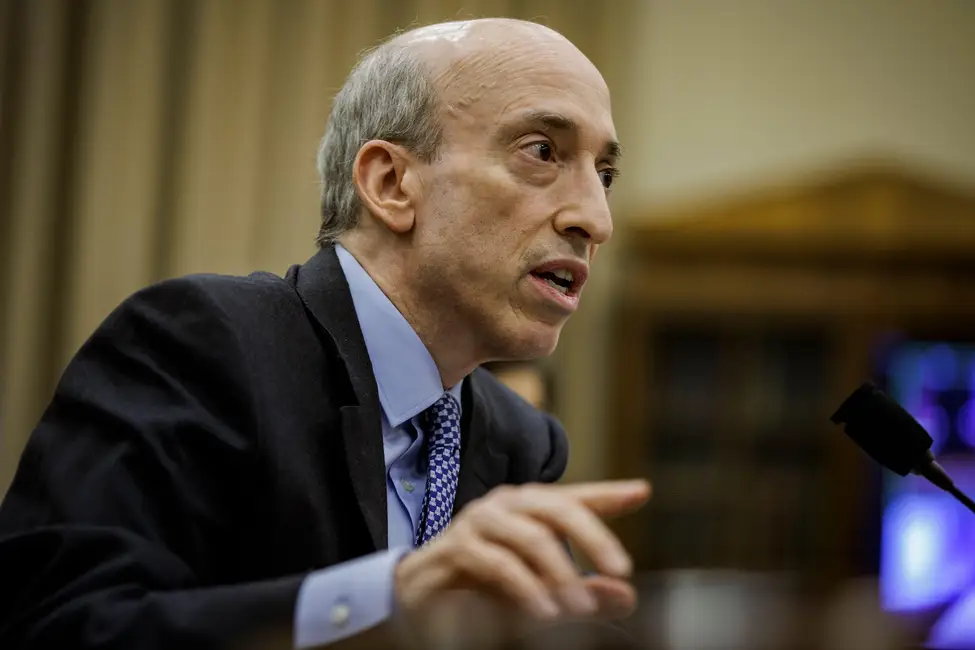The rise of cryptocurrency has transformed financial landscapes across the globe, and the US ambitions in this sector play a pivotal role in shaping the future of GCC crypto. With the United States stepping up its focus on regulation and innovation within the digital currency space, countries in the Gulf Cooperation Council (GCC) are at a crucial juncture. The decisions made by US policymakers not only influence local markets but also present an opportunity for GCC nations to align their own strategies to benefit from the burgeoning digital economy.
As the GCC region navigates this new terrain, the dynamics of crypto adoption will be heavily impacted by America’s regulatory frameworks and technological advancements. US ambitions signify a potential movement towards more structured and secure crypto transactions, which could offer a model for GCC countries looking to enhance their own regulatory environments. Being proactive in this area will not only foster greater confidence among investors but also position GCC nations as leaders in the crypto space.
However, this synchronization comes with challenges. GCC countries must carefully consider the implications of US regulations while striving to maintain their own identity and innovation. There is a delicate balance between adopting beneficial policies and ensuring that the region remains attractive for crypto enterprises and enthusiasts. Ultimately, GCC nations stand at a crossroads, where their stance on US ambitions could either bolster or hinder their growth in the crypto sector.
The intersection of US ambitions and GCC crypto presents both opportunities and obstacles. As the US shapes the future of cryptocurrency, it is imperative for GCC countries to stay agile and responsive to these developments to ensure their aspirations in the digital currency landscape are met.
The Current Landscape Of Cryptocurrency In The GCC Region
The GCC (Gulf Cooperation Council) region has seen an explosion of interest in cryptocurrency over the past few years. Despite varying levels of regulation and adoption, countries like the UAE, Saudi Arabia, and Bahrain have emerged as leaders in the cryptocurrency sector within the Middle East. The region’s technological infrastructure, coupled with a young and tech-savvy population, provides a fertile environment for crypto innovations and startups.
In particular, the *UAE* has implemented progressive regulations aimed at attracting blockchain and fintech companies, establishing low-tax environments, and providing favorable business landscapes. In Dubai, initiatives like “Crypto Valley” and the Dubai Multi Commodities Centre (DMCC) Free Zone have become hubs for various crypto-native businesses.
Conversely, countries such as Saudi Arabia are navigating the crypto-space more cautiously. With its Vision 2030 initiative, the kingdom aims to diversify its economy beyond oil; however, its regulations surrounding cryptocurrency continue to evolve. The licenses for crypto exchanges are being introduced, marking a significant step towards institutional acceptance within the market.
Amidst such advancements, opportunities also arise for blockchain technology integration in various sectors, including finance, healthcare, and logistics. This presents unique prospects for collaboration between startups and established industries across the GCC. However, despite these promising developments, challenges remain, particularly in ensuring compliance with regulatory frameworks and global standards.
The current landscape of cryptocurrency in the GCC region reflects both ambition and caution as nations pursue pathways to leverage the economic potential of this burgeoning sector. The intersection of regulatory growth, technological innovation, and economic strategy underscores the unique journey faced by the GCC in the crypto domain.
How US Policies Shape The Future Of GCC Crypto Adoption
The evolving landscape of cryptocurrency in the Gulf Cooperation Council (GCC) region is significantly influenced by US ambitions and regulations. As the United States continues to establish its regulatory framework for digital currencies, its policies act as a catalyst for change in the GCC. This situation presents both challenges and opportunities for GCC countries seeking to expand their crypto markets. The interplay between US directives and local regulations will determine the pace at which crypto adoption can thrive in this region.
US Ambitions regarding crypto regulation can potentially create a more structured environment for investments in the GCC. As American firms navigate the complexities of cryptocurrency, GCC countries stand to benefit from technical innovations, investment flows, and collaboration in the crypto space. However, as GCC nations align their policies with US regulations, they may also face challenges in adapting to these frameworks, which can stifle local innovation and disrupt existing business models.
Moreover, US policies might serve as a benchmark that GCC countries will look to in establishing their regulations. These external influences may drive GCC nations to adopt more stringent compliance guidelines, impacting the overall pace of crypto development. On the flip side, by embracing a balanced approach, GCC countries could attract global investors who seek regulatory clarity and stability, positioning themselves as leaders in the crypto sector.
Key Opportunities For GCC Countries Amid US Ambitions In Crypto
The global crypto landscape is constantly evolving, and the ambitions of the US are particularly influential in shaping this evolution. For GCC (Gulf Cooperation Council) countries, these shifts present both challenges and unparalleled opportunities. The regulatory environment in the US may create a gap that GCC nations can exploit to attract crypto investments and innovation. This spells a chance for GCC countries to position themselves as crypto hubs by fostering a welcoming regulatory framework that encourages innovation.
The need for compliance with US regulations is prompting many companies to seek alternative jurisdictions. GCC countries, with their strategic locations and robust financial infrastructure, are in a prime position to fill that void. By offering competitive advantages such as lower taxes and streamlined regulatory processes, these nations can draw in crypto businesses that are looking for a base of operations outside the US. This influx of investment could significantly enhance their local economies.
Additionally, the ever-growing interest in digital currencies highlights the potential for GCC nations to lead the charge in the adoption of blockchain technologies. As the US focuses on establishing a regulatory framework for crypto, GCC countries can leap ahead by integrating these technologies into their public and private sectors. This proactive approach can not only stimulate economic growth but also position these nations as leaders in crypto innovation.
With US ambitions pushing companies towards compliance and clarity, GCC nations have a unique opportunity to create strategic partnerships with international crypto players. This could involve knowledge sharing and joint ventures that bolster local talent, making them more competitive on the global front. By embracing the momentum generated by recent developments in the US, GCC countries can significantly enhance their presence in the crypto market.
The intersection of US ambitions and GCC crypto creates a unique setting ripe with opportunities. Nations within the GCC must adapt and leverage these dynamics to establish themselves as leading crypto hubs, attracting investment, fostering innovation, and integrating new technologies that will benefit their economies significantly.
Challenges And Risks Faced By GCC Crypto In Light Of US Regulations
The GCC (Gulf Cooperation Council) cryptocurrency landscape is undergoing significant evolution, but it now faces considerable challenges due to the US regulatory frameworks. The US Ambitions for tighter control over the cryptocurrency sector create uncertainty for GCC countries, as compliance with foreign regulations can become an obstacle for local blockchain businesses. Many GCC enterprises are seeking to innovate and expand, yet they find themselves at a crossroads dictated by US standards that may not necessarily align with their regional goals.
One of the main challenges is the risk of increased scrutiny from US regulators. As the US government focuses on enforcing laws regarding cryptocurrency trading and transactions, GCC crypto firms operating in or engaging with US markets could face stringent compliance measures. This could discourage investment and entrepreneurship within the GCC region. Additionally, there is a risk of isolation from the global market if GCC businesses cannot adapt to these escalating requirements.
Moreover, the reliance on unstable currencies poses a significant threat amid a backdrop of US economic policy shifts. GCC crypto assets must navigate fluctuations stemming from US monetary policy changes that can affect global currency strength and investment appetites. Therefore, the potential for adverse market reactions makes it imperative for GCC nations to strategize effectively while considering the influence of US regulations on cryptocurrency operations.




